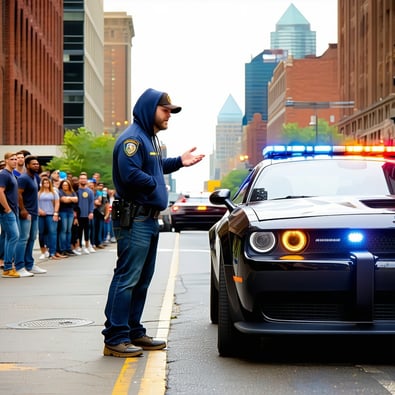Police officers discovered a secret attic cannabis factory behind a Narnia-style wardrobe, a court heard.
Jurors at Oxford Crown Court were told that the officers had been sent to Richard Osborne’s home in Manor Road, Banbury, after his car was pulled over at the Newbury services on the A34 in April 2021 and 1.3kgs of packed cannabis – allegedly worth up to £9,600 - found dotted around the vehicle and in the pocket of a golf bag.
Opening the case on Thursday afternoon (April 13), prosecutor Matthew Knight said one of the officers searching the loft noticed that the floor space in the attic was half that in the floor below.
Against a wall at one end of the loft was a wardrobe, the prosecutor said. Brushing past the clothing inside, the constable pushed against the back of the wardrobe and discovered a false back wall – fixed in place by magnets.
“Through it led to a hidden room,” Mr. Knight said of the space beyond the wardrobe.
Unlike Lucy Pevensie, one of the young characters in C.S. Lewis’s The Lion, the Witch and the Wardrobe, it was not the wintry forests of Narnia that the constable found in the room beyond the cupboard – but a forest of cannabis plants.
Mr Knight said: “In a rather Narnia-esque moment what was revealed to the officer was a cannabis factory.”
The room was well set up, the court heard, with tents made from reflective material, fans and 59 prized female cannabis plants.
Once mature, the plants could have been harvested to produce 3kgs of cannabis worth around £21,000 at mid-market rates, a police drugs expert said. If cuttings were taken, each plant could produce up to four yields a year.
“This was more than an experimental setup for the production of a bit of cannabis. This was, as I said a moment ago, a commercial operation,” Mr Knight told the jury.
Having discovered the secret room, the officers also found £10,000 cash bagged up and hidden in a cavity beneath a window sill. A further £300 was found in a safe in the bedroom.
Osborne was interviewed by the officers on two occasions but answered no comment.
Mr. Knight told the jury that it ‘may well be the case’ that Osborne would say the £10,000 was the proceeds from the sale of two vehicles to ‘someone in Zimbabwe’ in 2019. He denied that the cash was the proceeds of criminal activity, the jury heard.
Cross-examining Thames Valley Police drugs expert Robert Hood yesterday (April 13), defence barrister Maja Wilkins suggested he could not rule out that a heavy cannabis user might have grown the drug in bulk to store and then shut down their operation. “No, I can’t,” he said.
He agreed that having looked at images of the plants found in the back of Osborne’s car, it was possible that the plants could have been used to produce cannabis oil.
No phone evidence indicative of the defendant being a mid-market dealer had been provided to him, he agreed. Similarly, there was no evidence of a ‘dealer list’ of customers having been found.
His phones were seized and analyzed, and there were no messages consistent with him dealing cannabis, the jury heard. His laptops were eventually analyzed and showed a few minor searches’ had been made for cannabis oil.
The defendant, of Manor Road, Banbury, denies possession of criminal property. He has already admitted involvement in the supply of cannabis, the jury was told.
The trial continues.




